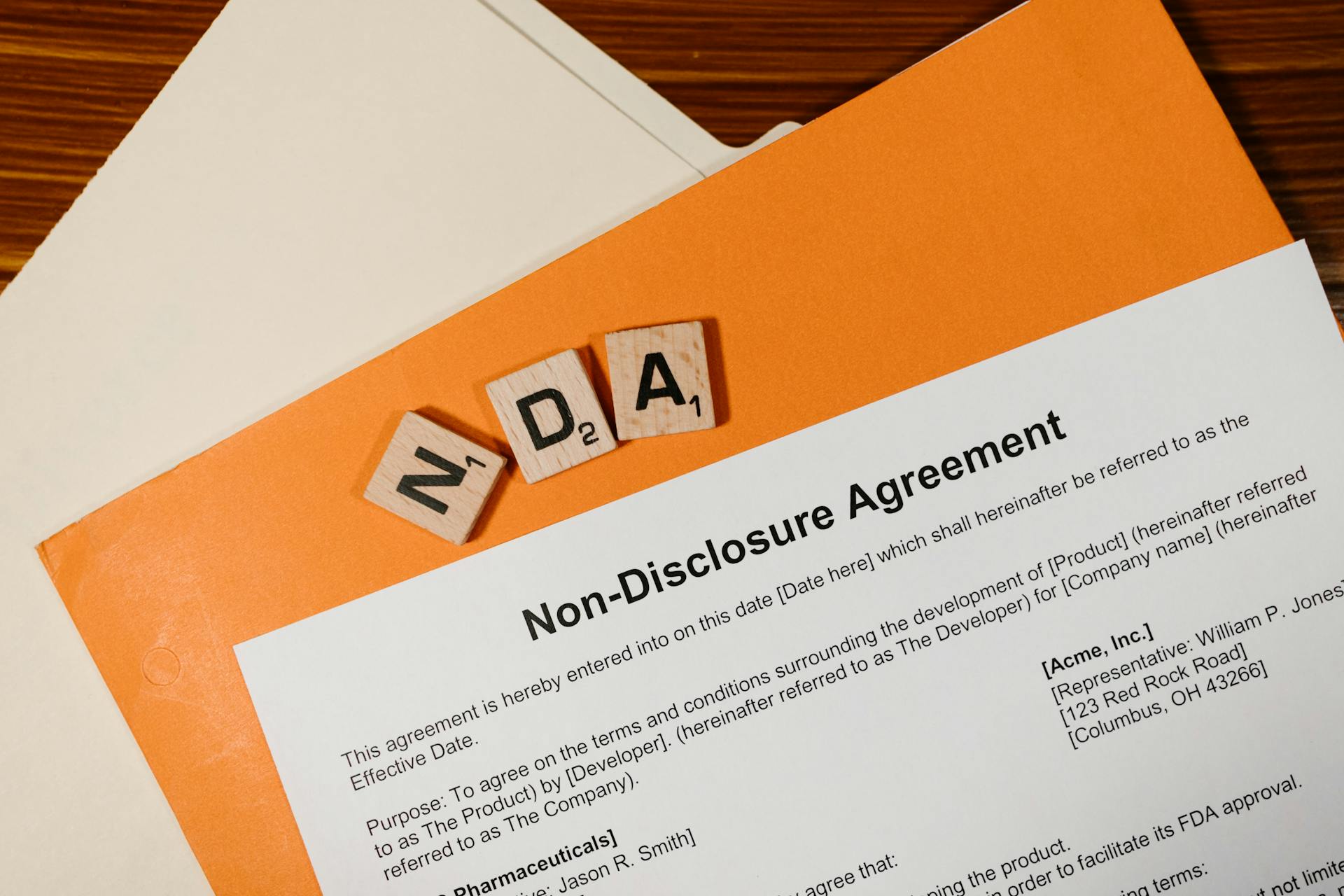
To ensure PCI HIPAA compliance and data protection, organizations must understand the requirements of both standards. PCI DSS requires merchants to protect cardholder data by implementing measures such as encryption and secure storage.
Organizations must also comply with HIPAA, which requires the protection of sensitive patient health information. This includes implementing policies and procedures for data access, storage, and disposal.
Merchants who handle cardholder data must also meet the requirements of PCI DSS, which includes regular security audits and vulnerability scans.
Compliance and Regulation
Maintaining both PCI and HIPAA compliance can be a challenge, but it's crucial to protecting patients' sensitive data from threat actors. Both HIPAA and PCI have their own set of standards and requirements, with very few overlapping validation points.
To maintain HIPAA compliance, healthcare organizations should conduct regular security risk analyses, conduct employee training, and enact technical safeguards to prevent unauthorized access to PHI. They should also develop an incident response plan, conduct third-party risk assessments, and enter into business associate agreements with third-party vendors, as required by HIPAA.
The Office of the National Coordinator for Health Information Technology (ONC), Office for Civil Rights (OCR), and other HHS agencies have created numerous resources and guides for covered entities to help maintain HIPAA compliance. These resources can be found on the ONC and OCR websites.
To maintain PCI compliance, organizations should focus on cross-enterprise communication to ensure that all card data being transmitted across the network is accounted for. This is especially important in large health systems with decentralized payment processing systems.
Here are some key requirements for maintaining PCI compliance:
- Deploy a point-to-point encryption device that encrypts the credit card as it's immediately captured.
- Use the PCI Point-to-Point Encryption (P2PE) Standard to validate point-to-point encryption technology.
- Ensure that all card data being transmitted across the network is accounted for through effective cross-enterprise communication.
Maintaining both PCI and HIPAA compliance requires a coordinated effort across the organization, with clear communication and a focus on protecting sensitive data. By following these requirements and staying up-to-date on the latest regulations and standards, organizations can ensure the security and integrity of patient data.
Intriguing read: Hipaa Data Governance
Standards and Differences
PCI standards and HIPAA have different objectives, but both aim to safeguard sensitive data. HIPAA focuses on protecting personal health information (PHI), while PCI standards protect credit card data.
Check this out: Security Standards Hipaa
One key difference between the two is the scope of sensitive information they protect. PCI DSS applies specifically to credit card data, whereas HIPAA applies to all personal health information (PHI). This means that an organization handling credit card data but not PHI would only need to comply with PCI DSS.
HIPAA has a broader and more flexible structure compared to PCI DSS, providing fewer explicit details, allowing providers to independently determine and work out many implementation specifics. In contrast, PCI DSS has well-defined and finite security requirements, primarily focusing on safeguarding credit card transactions.
Here's a comparison of the two:
Both frameworks involve conducting risk analyses, implementing remediation processes, and regularly conducting vulnerability scans.
What Are Standards, Who Is Responsible?
Standards and compliance can be complex, but understanding the basics is crucial for protecting sensitive data. PCI standards were created to protect credit card data from fraud and misuse.
These standards apply to any merchant that stores, processes, or transmits cardholder data, including healthcare organizations that process payments. The PCI Security Standards Council (PCI SSC) is responsible for maintaining and managing the security standards.
Intriguing read: Hipaa Security Services
The founding member entities, including American Express, JCB International, MasterCard, Visa, and Discover, enforce the standards. PCI SSC describes itself as a global forum that brings together payments industry stakeholders to develop and drive adoption of data security standards and resources for safe payments worldwide.
Organizations must have specific procedures in place to comply with PCI standards, such as installing and maintaining a firewall configuration and encrypting the transmission of cardholder data across public networks.
Check this out: Hipaa Compliant Payments
Standards Differences
HIPAA and PCI DSS have different scopes, with HIPAA applying to all personal health information (PHI) and PCI DSS specifically to credit card data.
HIPAA has a broader and more flexible structure than PCI DSS, providing fewer explicit details and allowing providers to determine implementation specifics.
The two standards have distinct requirements for breach notification, with HIPAA mandating notification to affected individuals and the Department of Health and Human Services (HHS) in the event of a breach.
Take a look at this: An Impermissible Disclosure Is Considered a Breach under Hipaa
HIPAA-compliant digital environments are more complex due to the need to balance patient data security with accessibility for healthcare professionals.
HIPAA data verification requires human intervention, whereas PCI DSS data verification is an automated process.
HIPAA compliance is more difficult to achieve than PCI DSS compliance due to the need to protect sensitive patient data while ensuring authorized personnel can access it.
Key differences between HIPAA and PCI DSS include:
- HIPAA applies to healthcare providers, health plans, and healthcare clearinghouses, while PCI DSS applies to any organization that accepts credit card payments.
- HIPAA requires notification of affected individuals and HHS in the event of a breach, while PCI DSS does not have similar requirements.
- HIPAA has a broader scope and more flexible structure than PCI DSS.
- HIPAA compliance is more difficult to achieve than PCI DSS compliance.
Data Security and Protection
HIPAA necessitates that covered entities establish administrative, physical, and technical safeguards to protect the confidentiality, integrity, and availability of the PHI they generate, receive, transmit, and maintain.
The black market value of a healthcare data record can be as high as $250, making it a prime target for cyberattacks.
Both financial data and health data are protected by employing similar technical and administrative safeguards such as employee cybersecurity training or data encryption.
The PCI standards explicitly mandate installing and maintaining a firewall configuration to safeguard cardholder data, and protecting all systems against malware.
A unique perspective: Hipaa Administrative Safeguards
If you have someone’s medical information, name, email address, physical address, and SSN, and then you couple that with payment data, you can become whoever you want, making identity theft and fraud a significant risk.
Cybercriminals target both financial data and health data, making it essential to adequately protect sensitive data.
A unique perspective: Making a Company Hipaa Compliant
Industry and Applicability
The scope of PCI DSS and HIPAA regulations is broad, but they specifically target different types of organizations.
PCI compliance is necessary for any organization involved in processing, storing, or transferring payment information, which includes eCommerce businesses and payment processing companies.
These organizations must demonstrate PCI compliance to be viewed as reliable and trustworthy by major credit card companies and banks.
HIPAA compliance, on the other hand, pertains to specific categories of organizations listed as "covered entities" within the legislation.
This primarily includes hospitals, clinics, health plans, nursing homes, pharmacies, and other relevant entities that handle PHI.
These organizations are subject to HIPAA regulations to ensure PHI confidentiality.
For more insights, see: No Surprises Act Regulations
Achieving and Maintaining Compliance
Achieving and maintaining compliance with HIPAA and PCI standards can be a daunting task, but it's crucial for protecting sensitive data.
The two standards have very few overlapping validation points, so achieving HIPAA compliance does not automatically mean PCI compliance is a given.
To maintain HIPAA compliance, healthcare organizations should conduct regular security risk analyses and employee training. They should also enact technical safeguards to prevent unauthorized access to PHI.
Developing an incident response plan, conducting third-party risk assessments, and entering into business associate agreements (BAAs) with third-party vendors are also essential for HIPAA compliance.
Maintaining PCI compliance is equally important, and it requires effective cross-enterprise communication to ensure all card data is accounted for. This is particularly challenging in large health systems with decentralized payment processing.
To maintain a baseline level of card security, organizations should deploy point-to-point encryption devices that encrypt credit card data as it's captured. The PCI SSC has its own standards for validating this technology, ensuring merchants meet certain expectations.
Here are some key steps for maintaining both HIPAA and PCI compliance:
- Conduct regular security risk analyses and employee training for HIPAA compliance.
- Deploy point-to-point encryption devices for PCI compliance.
- Develop an incident response plan and conduct third-party risk assessments for HIPAA compliance.
- Enter into business associate agreements (BAAs) with third-party vendors for HIPAA compliance.
Sources
- https://www.techtarget.com/healthtechsecurity/feature/PCI-Compliance-Versus-HIPAA-Compliance-In-Healthcare
- https://www.pcipal.com/knowledge-center/resource/what-are-the-main-differences-and-similarities-between-pci-dss-and-hipaa/
- https://the-refinery.io/blog/what-is-the-difference-between-hipaa-compliance-pci-compliance
- https://ermprotect.com/blog/pci-hipaa-fedramp-cloud-compliance/
- https://www.ifaxapp.com/hipaa/pci-dss-vs-hipaa/
Featured Images: pexels.com


